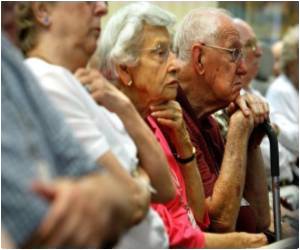In older adults depression can worsen knee arthritis, says study. Patients with mild to moderate knee arthritis are especially affected by depression.

"The results of this study indicate that depression can play a major role in the way patients experience the symptoms of knee arthritis, and that even when X-rays show the arthritis is not severe, patients with depression may report significant pain," Dr. Kim said. "The relationship between pain and depression suggests that both should be considered by physicians when treating patients with knee osteoarthritis, particularly in those with X-rays not indicating severe damage to the joint."
The study included 660 men and women aged 65 years or older who were evaluated for the severity of their knee arthritis on X-rays, as well as symptom severity. Patient interviews and questionnaires were used to assess coincident depressive disorders. The study was conducted as a part of the Korean Longitudinal Study on Health and Aging (KLoSHA).
As expected, the researchers found the levels of pain attributed to knee arthritis were higher in patients whose X-rays indicated greater joint damage; however, they also found depressive disorders were associated with an increase in pain in patients with mild to moderate knee arthritis, even when X-rays did not show significant joint damage.
"When evaluating the results of this study, the contribution of depression to knee osteoarthritis symptoms was almost as important as the damage indicated on X-rays," Dr. Kim noted.
Knee arthritis typically affects men and women over 50 years of age, and occurs most frequently in people who are overweight. Common symptoms include:
- pain or stiffness in or around the knee;
- swelling of the knee;
- limited range of motion when walking or moving the knee; or
- knee weakness or a feeling of instability.
Advertisements
Although studies have indicated depression is not uncommon among older adults, it remains largely underdiagnosed. According to the National Institute of Mental Health (NIMH):
- The risk of depression increases with other illnesses and when ability to function becomes limited.
- Estimates of major depression in older people range from 1 percent to 5 percent among those living in the community, to as high as 11.5 percent in hospital patients and 13.5 percent in those who require home healthcare.
- An estimated 5 million older adults have mild depression, which is often undiagnosed.Symptoms of depression may include:
- feelings of sadness or hopelessness;
- loss of interest in activities that were once enjoyed;
- change in appetite or sleep patterns;
- difficulty thinking and remembering; or
- frequent thoughts of death or dying.
Advertisements
Source-Eurekalert















